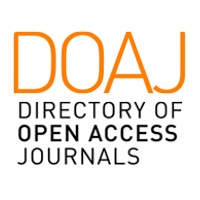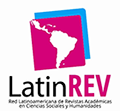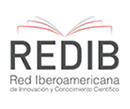O professor iniciante, a prática pedagógica e o sentido da experiência
Palavras-chave:
Formação de Professores, Profissão Docente, Trabalho DocenteResumo
O texto, guiado por questões sobre a profissionalidade e a profissão do professor, que já vem constituindo numa reflexão em trabalhos anteriores do autor, busca compreender o alcance e suas respectivas significações no campo da sociologia para pensar a docência como profissão, em relação com o mundo das profissões, e pensar suas especificidades e características que a rigor a diferenciam das demais profissões. Enfim, discute o trabalho docente, seus saberes e como isso vai se constituindo na vida profissional do professor como uma aprendizagem da profissão. Em que consiste a profissão docente, qual é a sua especificidade? É a docência uma profissão? Estas dentre outras se compõem num corpus de indagações que o autor procura debater ao longo deste trabalho.
Downloads
Referências
BEIJAARD, D.; MEIJER, P. C.; VERLOOP, N. Reconsidering research on teachers professional identity. Teaching and Teacher Education, v. 20, n. 2, p. 107-128, 2004.
BEREITER, C.; SCARDAMALIA, M. Educational relevance of the study of expertise. Interchange, v. 17, n. 2, p. 10-19, 1986.
BERLINER, D. In Pursuit Of The Expert Pedagogue. Educational Researcher, v. 15, n. 7, p. 5-13, 1986.
BERLINER, D. C. A personal response to those who bash teacher education. Journal of Teacher Education, v. 51, n. 5, p. 358-371, 2000.
BEY, T.; A. H., C. Mentoring: Contemporary Principles And Issues. Reston, 1992.
BIRD, T.; LITTLE, J. W. How schools organize the teaching occupation. The Elementary School Journal, v. 86, n. 4, p. 493-512, 1986.
BLANKENSHIP, R. L. Colleagues in organization: The social construction of work. New York: Wiley and Sons, 1977.
BOLAM, R. Teacher Recruitment and Induction. In: ANDERSON, L. (Ed.). International Encyclopedia of Teaching and Teacher Education. Oxford: Pergamon, 1995. p. 612-615.
BOLAM, R..; McMAHON, A. Literature, definitions and model: Towards a conceptual map. In: DAY, C. (Ed.). International Handbook on the Continuing Professional Development of Teachers. Berkshire: McGraw-Hill Education, 2004. p. 33-60.
BOLIVAR, A. La identidad profesional del profesorado de secundaria: crisis y reconstrucción. Málaga: Aljibe, 2006.
BORKO, H. Clinical Teacher Education: The Induction Years. In: HOFMAN, J. A. E. S. (Ed.). Reality And Reform In Clinical Teacher Education. New York: Random House, 1986. p. 45-64.
BORKO, H.; PUTNAM, R. Learning to teach. In: CALFEE, D. B. A. R. (Ed.). New York: Macmillan, 1996. V. Handbook of Educational Psychology, p. 673-708.
BRANSFORD, J.; DARLING-HAMMOND, L.; LEPAGE, P. Introduction. In: DARLING-HAMMOND, L.;
BRANSFORD, J. (Ed.), Preparing teachers for a changing world. S. Francisco: Jossey Bass, 2005. p. 1-39.
BRANSFORD, J.; DERRY, S.; BERLINER, D.; HAMMERSNESS, K. Theories of learning and their roles in teaching. In: DARLING-HAMMOND, L.; BRANSFORD, J. (Ed.). Preparing teachers for a changing world. S. Francisco: Jossey Bass, 2005. p. 40-87.
BRITTON, E.; PAINE, L.; PIMM, D.; RAIZEN, S. Comprehensive Teacher Induction. Dordrecht: Kluwer Academic Press, 2002.
BUCHBERGER, F.; CAMPOS, B.; KALLOS, D.; STEPHENSON, J. Green paper on teacher education in Europe. Umea: Thematic Network on Teacher Education in Europe, 2000.
BULLOUGH, R. Becoming a Teacher. In: BILDDLE, B. (Ed.). Internatinal Handbook of Teacher and Teaching. London: Kluwer, 1998. p. 79-134.
COCHRAN-SMITH, M. Stayers, leavers, lovers, and dreamers. Insight about teacher retention. Journal of Teacher Education, v. 55, n. 5, p. 387-392, 2004.
COCHRAN-SMITH, M.; FRIES, K. The AERA Panel on Research and Teacher Education: Context and Goals. In: COCHRAN-SMITH, M.; ZEICHNER, K. (Ed.). Studying Teacher Education. The Report of the AERA Panel on Research and Teacher Education. New Jersey: Lawrence Erlbaum Associates, 2005. p. 37-68.
COCHRAN-SMITH, M.; LYTLE, S. Relationships of Knowledge and Practice: Teacher Learning in Communities. In: Pearson, A. I.-N. A. P. D. (Ed.). Washington: American Educational Research Association, 1999a. v. Review of Research in Education, p. 249-305.
COCHRAN-SMITH, M.; LYTLE, S. The Teacher Research Movement: A Decade Later. Educational Researcher, v. 28, n. 7, p. 15-25, 1999b.
COLLIS, B.; WINNIPS, K. Two scenarios for productive learning environments in the workplace. British Journal of Educational Technology, v. 33, n. 2, p. 133-148, 2002.
COOLAHAN, J. Teacher Education and Teaching Career in an Era of Lifelong Learning. Organisation for Economic Co-operation and Development (OCDE), 2002. (No. OECD Education Working Paper n. 2.).
DARLING-HAMMOND, L. Teacher Quality and Student Achievement: A Review of State Policy Evidence. Educational Policy Analysis Archives, v. 8, n. 1, 2000.
DARLING-HAMMOND, L. et. al. The design of teacher education programs. In: DARLING-HAMMOND, L.;
BRANSFORD, J. (Ed.). Preparing teachers for a changing world. S. Francisco: Jossey Bass, 2005. p. 390-441.
DAY, C. Pasión por enseñar. La identidad personal y profesional del docente y sus valores. Barcelona: Narcea, 2006.
DAY, C.; ELLIOT, B.; KINGTON, A. Reform, standards and teacher identity: Challenges of sustaining commitment. Teaching and Teacher Education, 21, p. 563-577, 2005.
DEWEY, J. Experience and education. New York: Touchtstone, 1938.
DUBAR, C. La socialisation. Construction des identités sociales et professionnelles. Paris: A. Colin, 1991.
ELLIOT, P.; CALDERHEARD, J. Mentoring For Teacher Development. In: KERRY, T.. (Ed.). Issues In Mentoring. London: Open University, 1995. p. 35-55.
ESTEVE ZARAZAGA, J. M. La formación inicial de los profesores de secundaria. Barcelona: Ariel, 1997.
ESTEVE, J. M. El profesorado de Secundaria. Hacia un nuevo perfil profesional para enfrentar los problemas de la educación contemporánea. Revista Fuentes, 3, 2001.
FEIMAN-NEMSER, S. From Preparation to Practice: Designing a Continuum to Strengthen and Sustain Teaching. Teachers College Record, v. 103, n. 6, p. 1013-1055, 2001.
FLORES, M. A. Context which shape and reshape new teachers´indetities: A multi-perspective study. Teacher and Teacher Education, v. 22, n. 2, p. 219-232, 2006.
GALVEZ-HJORNEVIK, C. Mentoring Among Teachers: A Review Of The Literature. Journal Of Teacher Education, v. 37, n. 1, p. 6-11, 1986.
GOLD, Y. Beginning Teacher Support. Attrition, Mentoring and Induction. In: SIKULA, J.; BUTTERY, T.;
GUYTON, E. (Ed.) Handbook of Research On Teacher Education. 2. ed. New York: Macmillan, 1997.
HARGREAVES, A. Teaching in the Knowledge Society. Education in the Age of Insecurity. New York: Teacher College Press, 2003.
HARGREAVES, A.; GOODSON, I. Teachers´ professional lives: Aspirations and actualities. London: Falmer Press, 1996.
HARGREAVES, D. The knowledge-creating school. British Journal of Educational Studies, v. 47, n. 2, p. 122-144, 1999.
HORN, P.; STERLING, H.; SUBHAN, S. Accountability through “Best Practice” Induction Model. ERIC ED: 464039. 2002.
HOYLE, E.; JOHN, P. Professional Knowledge and Professional Practice. London: Cassell, 1995.
HUBERMAN, M. The model of the independent artisan. In: Little, J. W.; McLAUGHLIN, M. W. (Ed.) Teachers’ Professional Relations in teachers’ work. Individual, colleagues and contexts. Chicago: Teacher College Press, 1993. p. 11-50.
INGERSOLL, V.; SMITH, T. The wrong solution to the teacher shortage. Educational Leadership, v. 60, n. 8, p. 30-33, 2003.
INGVARSON, L.; MEIERS, M.; BEAVIS, A. Factors affecting the Impact of Professional Development Programs on Teachers’ knowledge, Practice, Student Outcomes & Efficacy. Educational Policy Analysis Archives, v. 13, n. 10, 2005.
JONES, C.; BUBB, S.; TOTTERDELL, M.; HEILBRONN, R. Reassessing variability of induction for new qualified teachers: Statutory policy and schools’ provision. Journal of In-Service Education, v. 28, n. 3, p. 495-508, 2002.
KENNEDY, M. The Role of Preservice Teacher Education. In: SYKES, L. D.-H. A. G. (Ed.) S. Francisco: Jossey-Bass, 1999. v. Teaching as a Learning Profession. Handbook of Policy and Practice, p. 54-85.
LASKY, S. A sociocultural approach to understanding teacher identity, agency and professional vulnerability in a context of secondary school reform. Teaching and Teacher Education, 21, p. 899-916, 2005.
LITLE, J. W. The Mentor Phenomenon And Social Organization Of Teaching. In: CAZDEN, C. (Ed.) Review Of Research In Education. Washington: Aera, 1990. v. 16.
LITTLE, J. Locating learning in teachers’ communities of practice: Opening up problems of analysis in records of everyday work. Teaching and Teacher Education, v. 18, n. 8, p. 917-946, 2002.
LÓPEZ YÁÑEZ, J.; SÁNCHEZ MORENO, M. Acerca del cambio en los sistemas complejos. In: ESTEBARANZ, A. (Ed.) Construyendo el Cambio: Perspectivas y Propuestas de Innovación Educativa. Sevilla: Secretariado de Publicaciones de la Universidad, 2000.
LORTIE, D. School Teachers: A sociological study. Chicago: University of Chicago Press, 1975.
MAGNUSSON, S.; KRAJCIK, J.; BORKO, H. Nature, Sources, and Development of Pedagogical Content Knowledge for Science Teaching. In: GESS-NEWSOME, J. (Ed.) New York: Kluwer Academic Publisher, 2003. v. Examining Pedagogical Content Knowledge. The Construct and the its Implication for Science Education, p. 95-132.
MARCELO, C. Estudio sobre estrategias de inserción profesional en Europa. Revista Iberoamericana de Educación, 19, p. 101-144, 1999a.
MARCELO, C. Formación de profesores para el cambio educativo. Barcelona: EUB, 1999b.
OCDE. Teachers matter: Attracting, developing and retaining effective teachers. Paris: OCDE, 2005.
PAJARES, M. F. Teachers’ Beliefs and Educational Research: Cleanning Up a Messy Construct. Review of Educational Research, v. 62, n. 3, p. 307-332, 1992.
PÉREZ, A. M. Los maestros y la reforma educativa. Educación Interamericana de Desarrollo Educativo, 121, p. 193-211, 1995.
SABAR, N. From heaven to reality throughcrisis: Novice teachers as migrants. Teaching and Teacher Education, 20, p. 145-161, 2004.
SCHÖN, D. The reflective practitioner. How professional think in action. New York: Basiscs Books ed., 1983.
SCHWAB, J. The concept of the structure of a discipline. In: GIROUX, H. et al. (Ed.) Curriculum and Instruction. Berkeley: McCutchan, 1981. p. 51-61.
SHULMAN, L. Renewing the Pedagogy of Teacher Education: The Impact of Subject Specific Conceptions of Teaching. Paper apresentado no Simpósio sobre Didácticas Específicas en la Formación de Profesores, Santiago de Compostela, 1992.
SHULMAN, L. Theory, Practice, and the Education of Professional. The Elementary School Journal, v. 98, n. 5, p. 511-526, 1998.
SERPELL, Z. Beginning teacher induction: A review of the literature. Washington: American Association of Colleges for Teacher Education, 2000. v. ERIC ED 443783.
SMITH, T.; INGERSOLL, V. What are the effects of induction and mentoring on begininng teachers tunover? American Educational Research Journal, v. 41, n. 3, p. 681-714, 2004.
SYKES, G. Teacher and Student Learning. Stregthening Their Connection. In: DARLING-HAMMOND, L.;
SYKES, G. (Ed.) S. Francisco: Jossey-Bass, 1999. v. Teaching as a Learning Profession. Handbook of Policy and Practice, p. 151-179.
TALBERT, J.; McLAUGHLIN, M. Professional Communities and the Artisan Model of Teaching. Teacher and Teaching, v. 8, n. 3, p. 325-343, 2002.
TERIGI, F. Desarrollo profesional continuo y carrera docente en América Latina. PREAL, 2007a.
TOMLINSON, H. Continuing Professional Development in the Profession. In: TOMLINSON, H. (Ed.) Managing Continuing Professional Development in Schools. London: Paul Chapman, 1997. p. 13-26.
TOTTERDELL, M.; BUBB, S.; WOODROFFE, L.; HANRAHAN, K. The impact of new qualifed teachers (NQT) induction programmes on the enhancement of teacher expertise, professional development, job satisfaction or retention rates: A systematic review of research literature on induction. London: EPPI-Centre, Social Science Research Unit, Institute of Education, 2004.
VAILLANT, D. Mejorando la formación y el desarrollo profesional docente en Latinoamérica. Revista Pensamiento Educativo, Chile, v. 41, n. 2, 2007.
VALLI, L. Beginning teacher problems: Areas for Teacher Education Improvement. Action in Teacher Education, v. XIV, n. 1, p. 18-25, 1992.
VAN MAANEN, J.; SCHEIN, E. Toward a Theory of Organizational Socialization. Research in Organizational Behavior, 1, p. 209-264, 1979.
VAN VEEN, K.; SLEEGERS, P.; VAN DE VEN, P. One teacher’s identity, emotions, and commitmet to change: A case study into the cognitive-affective processes of a secondary school teacher in the context of reforms. Teaching and Teacher Education, 21, p. 917-934, 2005.
VEENMAN, S. Perceived Problems of Beginning Teachers. Review of Educational Research, v. 54, n. 2, p. 143-178, 1984.
VONK, J. H. C. A Knowledge Base for Mentors of Beginning Teachers: Results of a Dutch Experience. In: McBRIDGE, R. (Ed.) London: Falmer Press, 1996. v. Teacher Education Policy, p. 112-134.
WANG, J.; ODELL, S.; STRONG, M. Conversations about teaching. Learning from three novice-mentor pairs. In: DANGEL, J. R. (Ed.) Research on Teacher Induction. Teacher Education Yearbook XIV Toronto: Rowan and Littlefield Publishers, 2006. p. 125-144.
WENGER, E. Comunities of practice: Learning, meaning and identify. New York: Cambridge University Press, 1998.
WENGER, E.; MCDERMOTT, R.; SNYDER, W. M. Cultivating communities of practice. Boston: Harvard Business School Press, 2002.
WENGER, E.; SNYDER, W. “Communities of practice”: The organizational frontier. Harvard. Business Review, v. 78, n. 1, p. 139-145, 2000.
WIDEEN, M.; MAYER-SMITH, J.; MOON, B. A Critical Analysis of the Research on Learning to Teach: Making the Case for an Ecological Perspective on Inquiry. Review of Educational Reseach, 68, p. 130-178, 1998.
WILSON, S.; BERNE, J. Teacher Learning and the Acquisition of Professional Knowledge: An Examination of Research on Contemporary Professional Development. In: IRAN-NEJAD, P. D. (Ed.) Review of Research in Educaton. Washington: Americam Educational Research Association, 1999. p. 173-209.
WILSON, S.; FLODEN, R.; FERRINI-MUNDY, J. Teacher Preparation Research: Current Knowledge, Gaps, and Recommendations. Research Report prepared for the U.S. Department of Education. Center for the Study of Teaching and Policy, 2001.
WORLD BANK. Lifelong Learning in the Global Knowledge Economy: Challenges for Developing Countries. Washington: World Bank Education, 2002.
WONG, H. Induction programmes that keep new teachers teaching and improving. National Association of Secondary School Principal, NASPP Bulletin, v. 88, n. 638, p. 41-59, 2004.
YINGER, R.; HENDRICKS LEE, M. The Language of Standards and Teacher Education Reform. Educational Policy, v. 14, n. 1, p. 94-106, 2000.
ZABALZA, M. Los Nuevos Horizontes de la formación en la sociedad del aprendizaje (una lectura dialéctica de la relación entre formación, trabajo y desarrollo personal a lo largo de la vida). In: ESTELLA, A. Monclús (Ed.). Granada: Comares, 2000. v. Formación y Empleo: Enseñanza y competencias, p. 165-198.
ZEICHNER, K. Teacher induction practices in US and Great Britain. Paper presented at the AERA, San Francisco, 1979.
ZEICHNER, K. The New Scholarship in Teacher Education. Educational Researcher, v. 28, n. 9, p. 4-15, 1999.
ZEICHNER, K. M. Myths and Realities: Field-Based Experiences in Preservice Teacher Education. Journal of Teacher Education, v. 31, n. 6, p. 45-49, 1980.
Downloads
Publicado
Como Citar
Edição
Seção
Licença
Os direitos autorais pertencem exclusivamente aos autores. Os direitos de licenciamento utilizados pelo periódico é a licença Creative CommonsAttribution-NonCommercial 4.0 International (CC BY-NC-SA 4.0): são permitidos o compartilhamento (cópia e distribuição do material em qualquer meio ou formato) e adaptação (remix), transformação e criação de material a partir do conteúdo.



























